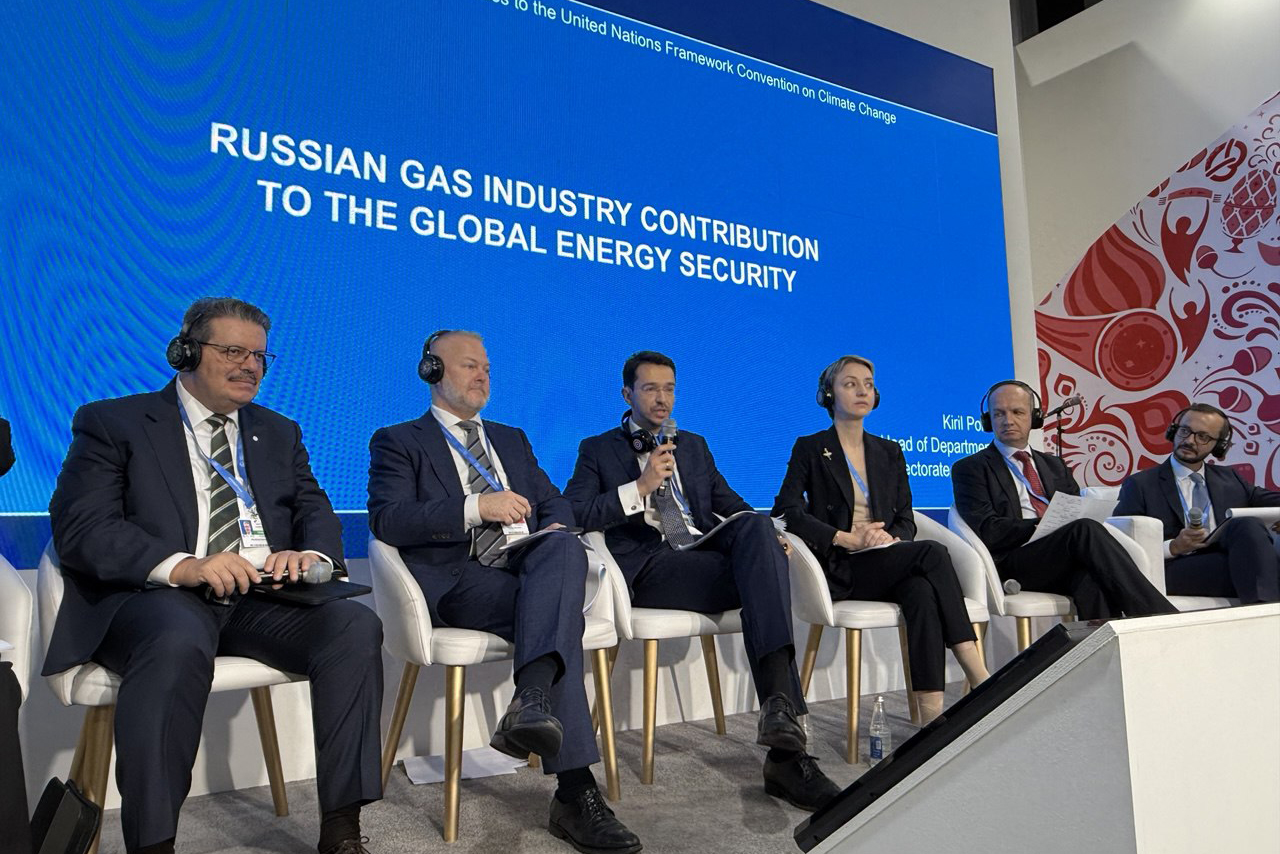
A Gazprom delegation takes part in the 29th session of the Conference of the Parties to the UN Framework Convention on Climate Change, which is held in Baku (Azerbaijan).
The Company representatives delivered reports as part of the Energy Day organized by the Ministry of Energy of the Russian Federation.
In his speech, Kiril Polous, Deputy Head of Department – Head of Directorate, Gazprom, noted that Russia’s gas industry and Gazprom significantly contribute to ensuring global energy security: in 2023, Russian gas accounted for about 15 per cent of global consumption. According to experts, natural gas consumption across the world will increase at a pace outstripping the growth of energy consumption in general. This is due to the advantages of gas as an energy carrier, i.e. its eco-friendliness, efficiency and availability from the technological point of view.
It is natural gas that can make a key contribution to the sustainable development of the energy industry. The countries that are interested in reliable energy supplies coupled with environmental care – for instance, Russia and China – are actively ramping up their natural gas consumption.
The report delivered by Alexander Ishkov, Deputy Head of Department – Head of Directorate, Gazprom, focused on the role of natural gas in achieving the objectives of the climate agenda. He highlighted that the specific greenhouse gas emissions associated with pipeline supplies of Russian gas are low. It was noted that the energy mix of Russia is already one of the most low-carbon energy mixes in the world, largely due to the use of natural gas.
In his speech, Mr. Ishkov elaborated on the Climate Project of Gazprom: the use of mobile compressor stations to prevent methane emissions. Through the use of said efficient modern technology, Gazprom has preserved about 3 billion cubic meters of gas since 2019, which means that the Company has prevented emissions of more than 28 million tons of CO2 equivalent. The obtained result made it possible for the Company to register carbon units with the Carbon Units Registry of Russia. The project is going on in compliance with the Energy Efficiency and Energy Saving Policy of Gazprom.
Under the Climate Strategy of Gazprom up to 2050, the Company successively implements the measures aimed at reducing the carbon intensity of its gas production, transmission, storage and processing activities. To that end, Gazprom employs cutting-edge Russian technologies. A vivid example of the work carried out in this direction is the introduction of the new-generation gas turbine engine AL-41ST-25 which has an increased efficiency and enhanced environmental safety characteristics.